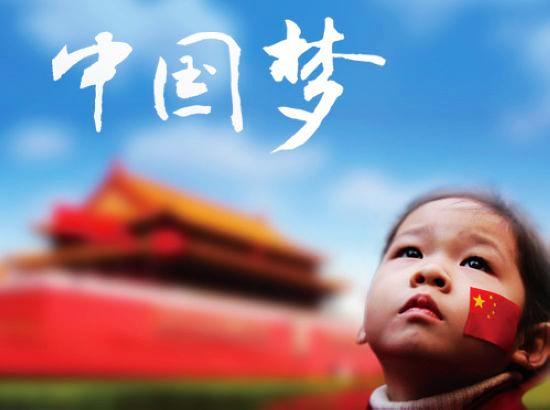It’s carpe diem time for China. What that might mean for the world.
It was pouring rain — sheets of rain — the night that Hong Kong returned to Chinese control. It was June 30, 1997, at midnight, inside a vast convention center.
A somber Prince Charles and a solemn row of Chinese officials watched as Britain’s flag was lowered down one flagpole, and the Chinese flag rose on another.

By that point, Hong Kong had been gone for a while … since 1842, when the Chinese emperor ceded Hong Kong island to Britain, which had just won the First Opium War with China. Later, for good measure, the Chinese also leased the British land physically attached to Mainland China – Kowloon, the New Territories – plus more than 230 outlying islands.
Hong Kong wasn’t much, then, about 7,500 people — but with its harbor and access to the Chinese coast and other parts of the region — its potential was clear. Up rose a financial and trading center and, eventually, a world-class business hub.
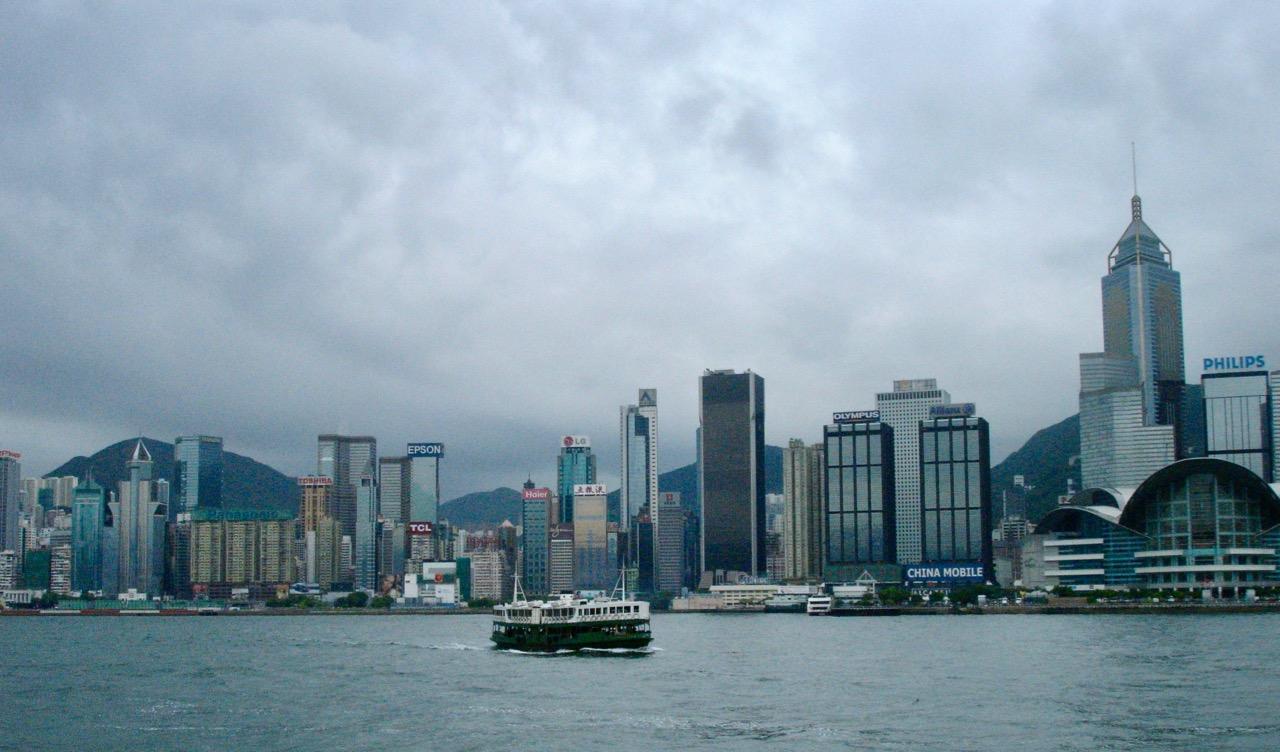
But China wasn’t done with Hong Kong. When the lease for Kowloon and the New Territories and all those islands ran out, China’s then-leader, Deng Xiaoping, said, actually, we’d like those back. And while, technically, Britain didn’t have to give Hong Kong island back, it wasn’t like it was going to be able to function on its own, if China’s leaders didn’t want it to — and they didn’t.
From their perspective, the return of Hong Kong to the Motherland was a matter of national pride, a way of righting what many Chinese saw as more than a century of humiliation at the hands of foreign powers. In the run-up to the Hong Kong handover, a count-down clock in Tiananmen Square ran for two and a half years, showing the days, hours, minutes and seconds until Hong Kong returned to Chinese control, until China could start telling a new kind of story about itself, about its national pride and power and place in the world.
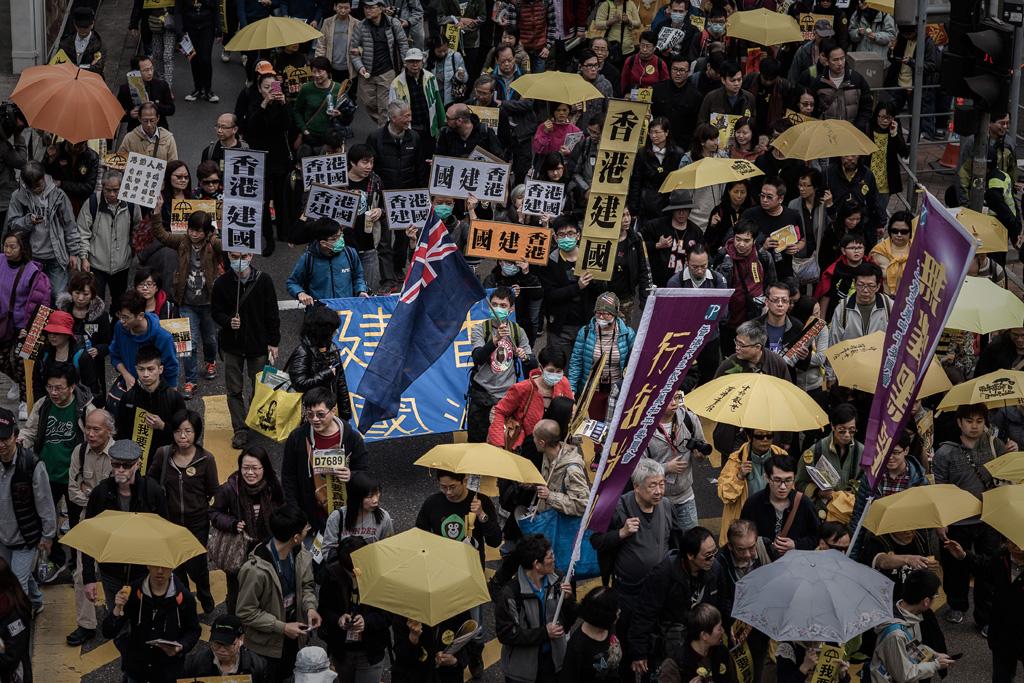
Twenty years later, many Hong Kong residents, especially young ones, want to start telling a new story about themselves, of having a unique Hong Kong identity, separate from China, of being a democracy, in contrast to China’s authoritarianism. The reaction from Beijing has been, of late, to contain and limit the freedoms and institutions that make Hong Kong different, to remind Hong Kong residents that they are part of China, and that the “One Country, Two Systems” agreement is open to interpretation by the Chinese government.
These are the actions of an increasingly confident global power, more confident than China’s leaders were when they negotiated the terms of the handover in the 1980s, more confident than they were even a decade later, on the night of the handover.
China now is in full stride, creating sweeping initiatives to fund infrastructure projects in Asia and beyond, building islands in the South China Sea for military bases, and staking its claim to much of those waters, appearing more statesmanlike than the current US president — in global gatherings like the World Economic Forum, and on issues like the future of the planet in an age of climate change.
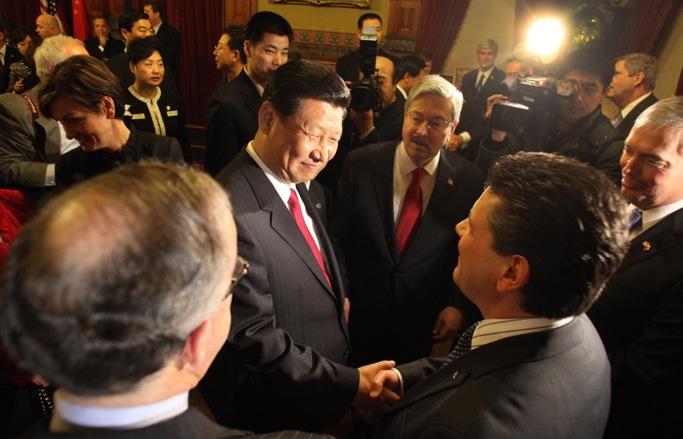
The US retreat under Donald Trump from its long-held leadership position in the world has left room for China to run. And the imperatives of slowing economic growth, an aging population, and thorny internal issues in China’s economy and political system, provide ample incentive to do what it can now. In the past four years, for starters, it has launched the Asian Infrastructure Investment Bank, now with 80 current or prospective members and $100 billion in capital — about half what the World Bank has — and it plans to invest hundreds of billions in building out infrastructure in Asia, Europe and parts of East Africa — a modern-day equivalent of the ancient Silk Road, with China as the economic hub, the indispensible nation.
That’s what China was for a long time in Asia, for hundreds of years, until it was knocked on its back foot by the Industrial Revolution and the rapid Western modernization and scientific advance that followed in its wake. Chinese in the early 20th century tried to break with the old practices of what some saw as China’s outdated past to embrace new ideas and practices. Under Mao Zedong, the rise of the Communist Party and the Cultural Revolution were all about breaking with the past.
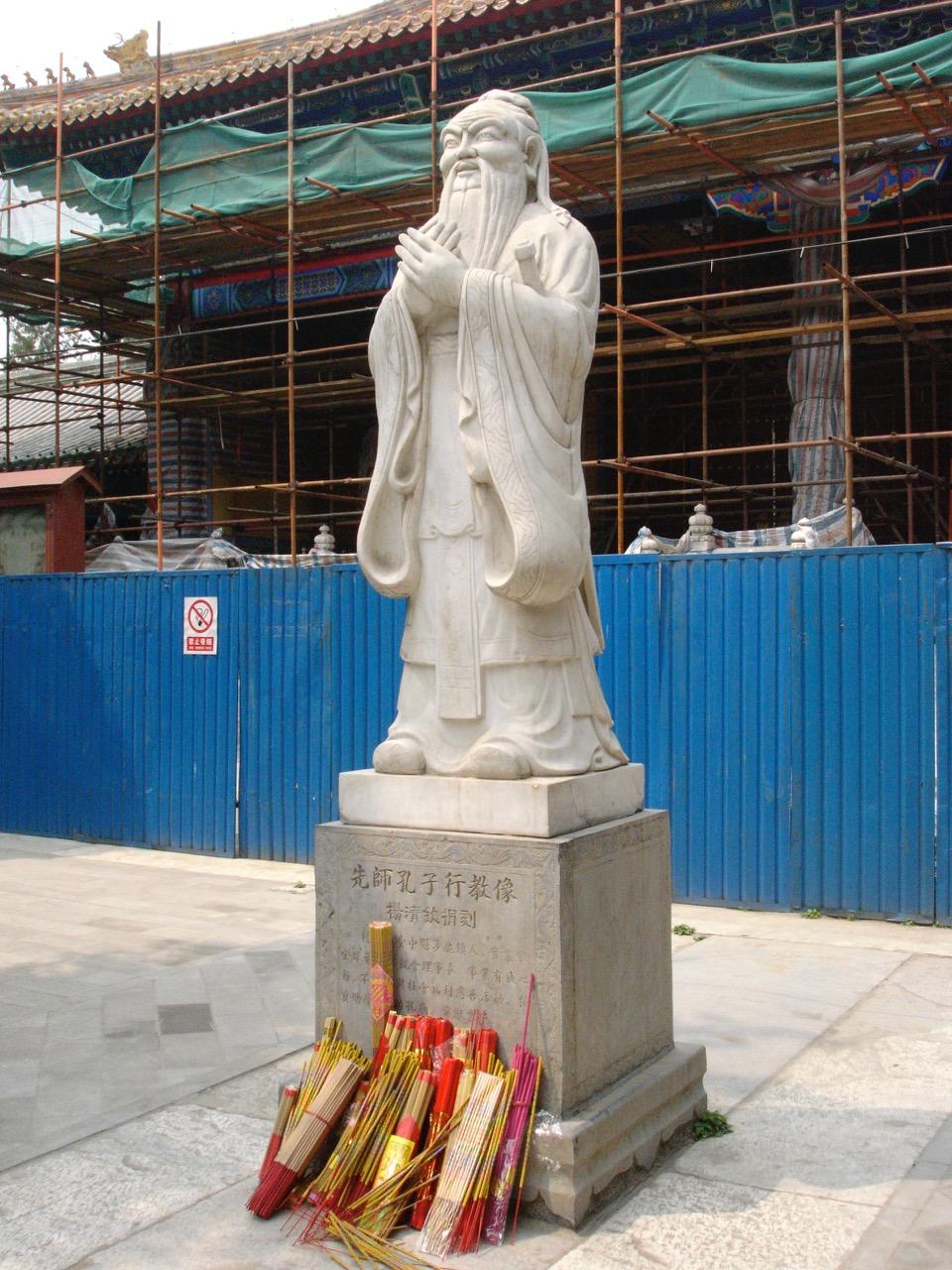
But modern China has now started to re-embrace the past, seen in a revival of the government’s promotion of Confucianism, which was ridiculed by Mao as old and inappropriate for the new China — but which has its purposes, in encouraging obedience to hierarchy.
There are also clubs where Chinese dress up in Han Dynasty costumes, and study China’s ancient history, and appreciate all that made China a mighty empire over the centuries. And there’s Xi Jinping – China’s current president and top party leader, who himself has been harking back to an idealized past, both the early years of Communist Party rule, and the ancient traditions of Chinese culture.
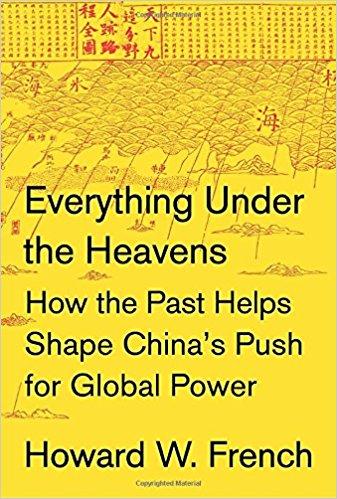
French: When I was a small boy in Washington, DC, in the early 1960s, the stories that came down to me from my father were of stories that his father had told him, of his fascination, I suppose, in the 1930s and ‘40s, with China … where there was this civilization that consisted of people who thought that they were superior to everyone else. And the reason that this would be particularly fascinating to people like us, an African American family in Washington, DC, in the early ‘60s, is that Washington was still a rather segregated city. And the United States was just then emerging from a very widespread state of segregation. And segregation, of course, is based on ideas of racial superiority. And to know that there was another civilization that was not the same one that thought of itself as being superior, thought of itself as being superior to everyone else — this … kind of, well, captivated my father first, and later captivated me.
Magistad: I would say for me, as a correspondent in China, I was always struck by two things going on at once. People could be incredibly open-minded and curious, and interested in, 'what's important to you? What are you thinking about?' But when it came to particular issues, especially sensitive issues at sensitive times, people would fall back on certain ways of looking at the world, looking at China's place in the world, looking at what the world was doing to China, especially what the United States was doing to China. And there was kind of a set narrative. 'China should not be in the place it's in right now. You should not be treating us like this. China is more important than how you're seeing us.’
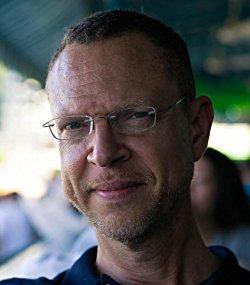
Magistad: In your book, you say that you're setting out to normalize China, to not make it seem so exceptional, that you can look at China's aspirations in the world and not think they stand apart from US aspirations, or the aspirations of any other great power. Why do you feel this is important? And why did you choose to frame the book the way you did, in terms of reaching back quite far into China's ancient history, to see where the roots of its sense of itself come from?
French: The reason that I try to de-exceptionalize China is because I think that a lot of China's present-day behavior can be understood in classical state power terms. Political scientists would probably resort to the term 'realist' — that China as a leading power that has been growing [rapidly] for the past generation or a little more, is beginning to express ambitions that come with a rapid rise in the world, and that you can see this [with other rising powers] at various other stages of history with lots of other examples.
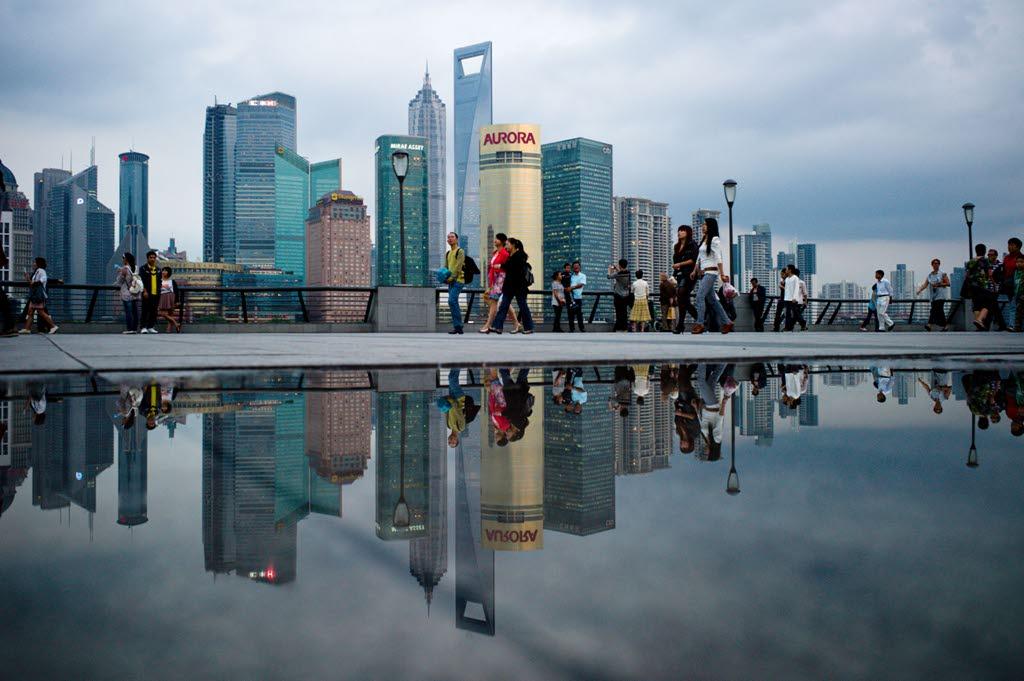
And to that extent, China throwing its weight around in the South China Sea, or China trying to integrate Central Asia and beyond via big infrastructure and financial schemes, with China competing with the United States in more and more direct ways, militarily in terms of the buildout of its armed forces, that all of these are very normal 'great power' behaviors. So to exoticize China and to see it as some kind of outlier, some kind of exception to the past, would be to misunderstand China.
I think China does in fact conform with classical patterns, and that China's economic growth, if it fits classical patterns, will follow a rather predictable profile. China has been in a phase for the last 35 to 40 years of exceptionally fast growth by world standards, but it would be wrong to see this as unusual, or unusually threatening especially. … As the economy matures, and the catch-up phrase ends, growth tends to slow down, and you then have to wrestle … with the problems of middle age, economically. … So the last 40 years should not become a baseline from which we project the future.
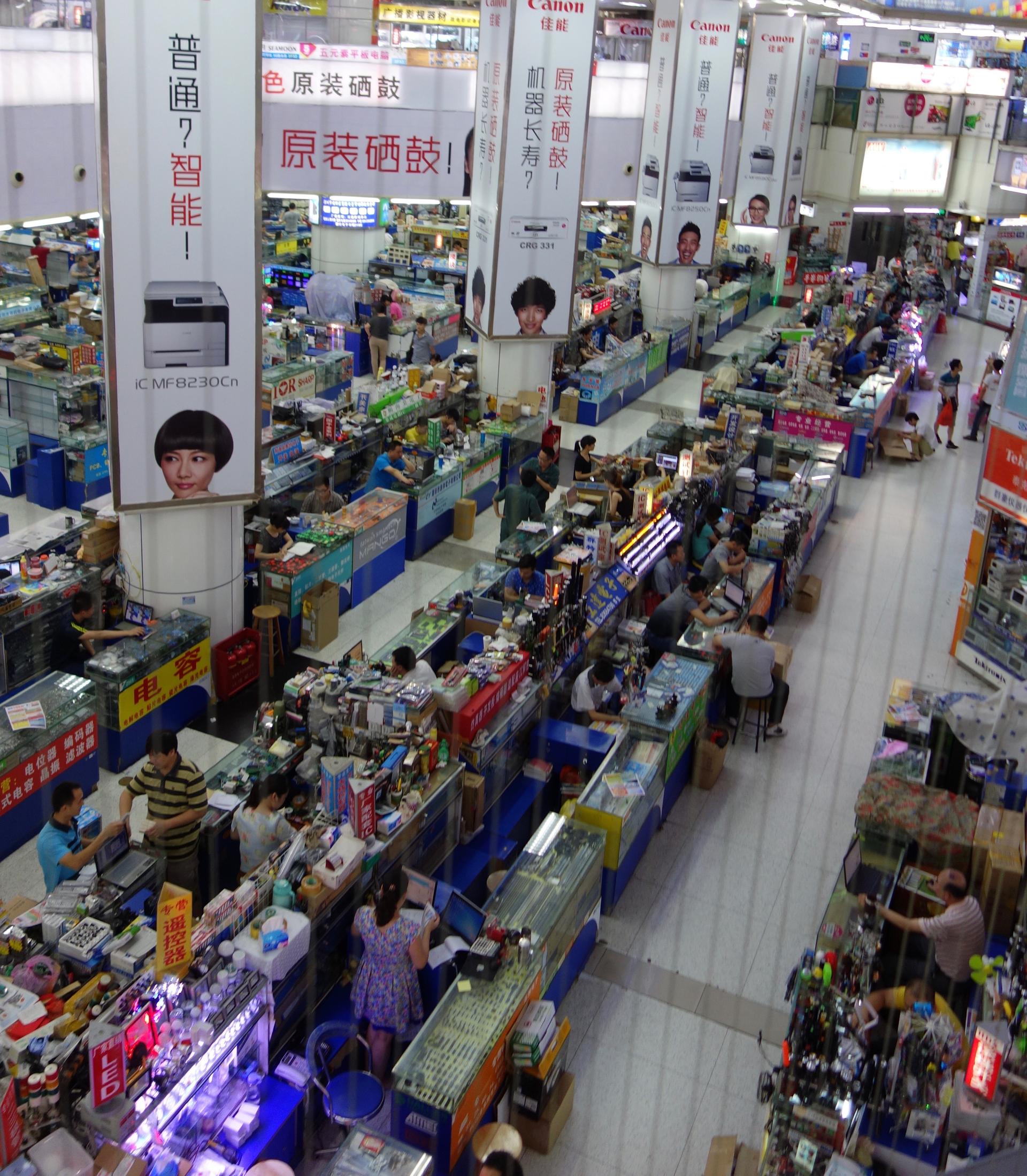
Magistad: When I was based in China, I did a series a dozen years ago on how traditional US allies in the region were viewing China's rise — Japan, South Korea, the Philippines, Thailand. That was at a time when China was talking about a 'peaceful rise,' a tide of prosperity that lifts all boats. Come and enjoy the bounty of our rise.' And at the time, a lot of China's neighbors were buying it. Not so much now. There are concerns about Chinese aggression in Myanmar, Vietnam, the Philippines, in South Korea. When I visited North Korea in 2005, a minder was complaining about China making claims to territory North Korea considered its own. How do you see this playing out, as China claims territory and waters it considers its own? Is there a way for this to happen without considerable pushback?
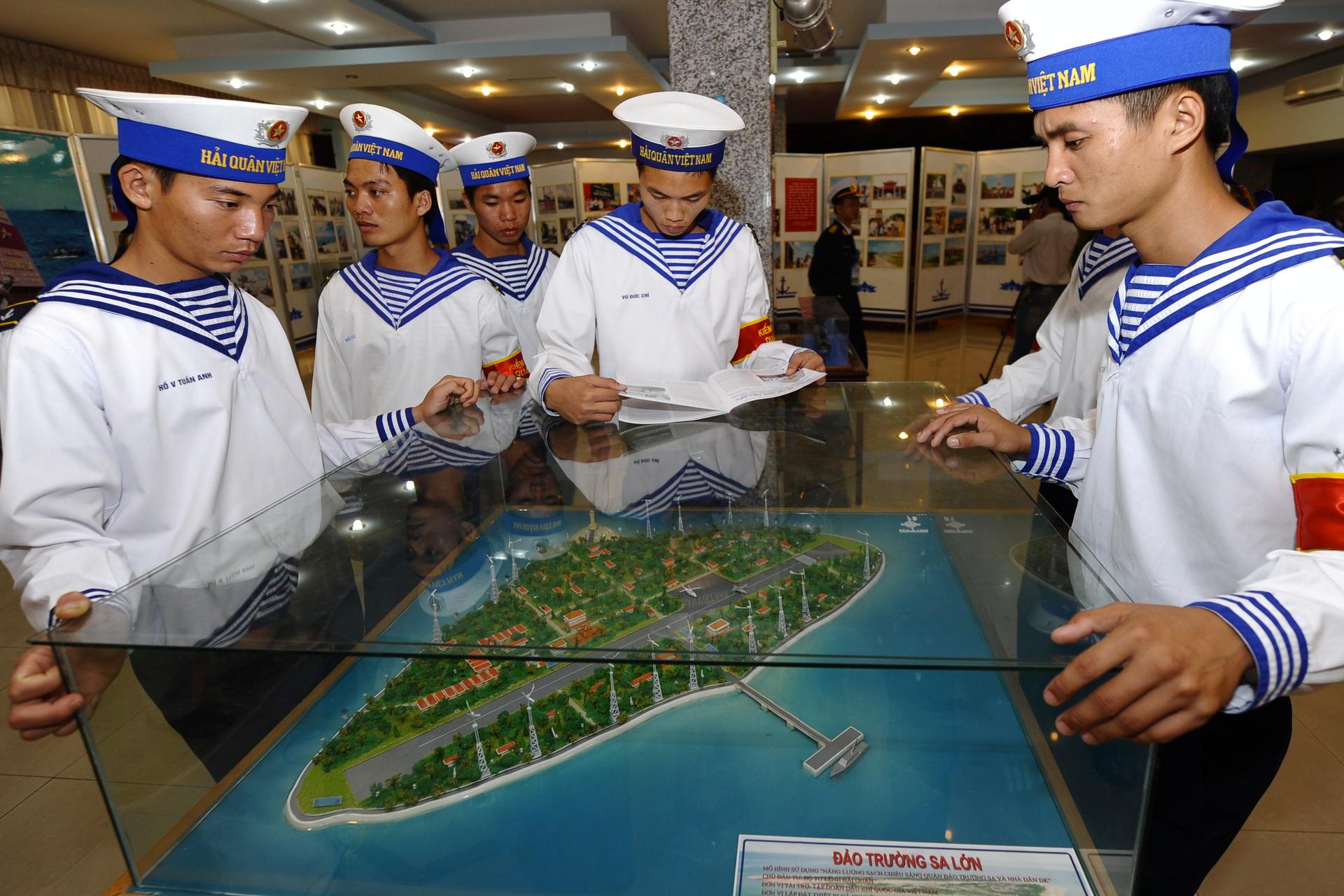
French: That's really the $64,000 question, and it's kind of the core of my book really. I think that we are entering, right now, a moment of very serious danger, which in my view, and I kind of roll out this argument in an extended way in my book, is likely to last for the next 10, 15, at the longest 20 years, after which, I think, if we can get through this transitional period, tensions will subside.
But we are entering the danger period. And we're entering the danger period because China has advanced so far, so quickly. And its strength, economically speaking, in terms of industrial competitiveness, military capability, and particularly in terms of capacities for self-defense and projection of force in the nearby seas, have come to draw close to the capacities of the United States. In a situation where you’ve had a rising power and a status quo power in history, where the gap between the two narrows rapidly and dramatically, that is the precise situation of highest danger — because neither side is absolutely certain that it is able to prevail in a moment of instability or of conflict.
In the rising power, you have strong constituencies that are tied up in the investment and effort to acquire capabilities, which say, 'what's the point of acquiring all of these capabilities, if you don't use them?'
And meanwhile, in the status quo power, what was once a very clear and unambiguous lead in all of these key areas from economic strength and competitiveness, to high tech to military capacity, as the gap narrows, anxiety begins to increase. And … a corresponding constituency says, in effect, ‘if we don't do something now to nip this threat in the bud, then it's going to be too late. We have to assert ourselves now to make clear who's in charge, or to make clear what the rules are.’
What's happening in the surrounding region is that, again I think one most usefully must resort to the realism that political scientists speak of. The neighboring powers are watching kind of anxiously to understand which way the wind blows. And so, how did they respond to this? Well the first thing they want to do is to avoid having to explicitly choose sides. And that means that most of them will want to obtain the benefits of economic cooperation with China, because China has been growing so fast and represents a huge market that's right on their doorstep, and to simultaneously enjoy the benefits of security arrangements with the United States, because the United States is this off-shore power far away that has been the trustee and guardian of the established rules of the road and who doesn't seem threatening.
And so you see lots of countries — Vietnam is the most interesting example of this — Indians are training Vietnamese submarine crews on how to run submarines that are used, among other ways, to deter Chinese attacks. The Japanese are helping pay for a new Philippines Coast Guard, and a Vietnamese Coast Guard as well. Australia plays in this game. All of the smaller countries, Malaysia, Indonesia, the Philippines, Vietnam, Thailand are seeking ways to balance against China — soft balancing against China in ways that are not meant to be offensive to China, but allow them to hedge their bets.
Magistad: You mentioned an important point in your book, which is, if China doesn't show respect for the rules and norms of the region, it pretty much encourages those countries to seek assistance, to seek support, to seek backup from the United States, and that actually plays against China's interests. How much do you think China's leaders are aware of that?
French: So there's a political scientist named Edward Luttwak, who I quote in the book at one point, who has developed a theory. He's basically a strategic thinker. And he's developed a theory, which is not exclusive to China, but describes a mentality or mindset that's common to very fast rising powers, as they begin to emerge, and to begin to more and more obviously contend with the status quo power. This mentality that he speaks of is called Great Power Autism. And, apologies to anyone who might take offense at this — this is not my term.
The point he's trying to make is that rising this far this fast is a giddy experience. And amid the giddiness that you experience during this rise, caution and all sorts of other perspectives are kind of lost. And so, you are not likely to be terribly perceptive of the cost that you may incur by offending other people, meaning in this case, your immediate neighbors, much smaller countries, because you think that when you rise as far and as fast as a country like China has risen, that this is an affirmation of your correctness.
So the next 10 years could be very messy, by accident or by design, to one degree or another. China could push in a way that involves hard power, to make gains in the immediate region at the expense of the status quo powers, most importantly for this conversation, the United States and Japan, which are the most important status quo powers in the region. And there could be a war. Or there could be at least some more limited form of conflict that could be ugly and very dangerous.
That's one scenario that's very real, cannot be discounted, which we must be very attentive to, and that our diplomats have to figure out a way to prevent/
You can imagine a leadership that says 'look, in 10-15 years, we can be down to 2 to 3 percent economic growth per year. … This is the moment when we have to go we have to make our big push. We have to lock in whatever gains we can lock in right now, meaning in the next 10 years.'
Still, I'm hopeful that we'll muddle through. Once we're past this transitional period of 10, maybe 15 years, then other things begin to happen. The demographics of China, I think, kick in — with hundreds of millions of people over the age of 65, with immense costs in medical care, possibly residential care, and China doesn’t have that infrastructure yet, because it hasn’t yet been at that stage of economic development. And so, if we get past this transitional period of 10 or 15 years, I'm very hopeful that China will say, 'listen, the status quo isn't as bad as we thought it was. We don't need to be such a grudging, victim-centric country. We've done well. We've come a long way.
Magistad: So what should the United States do during this somewhat tricky period, to minimize the risk of conflict?
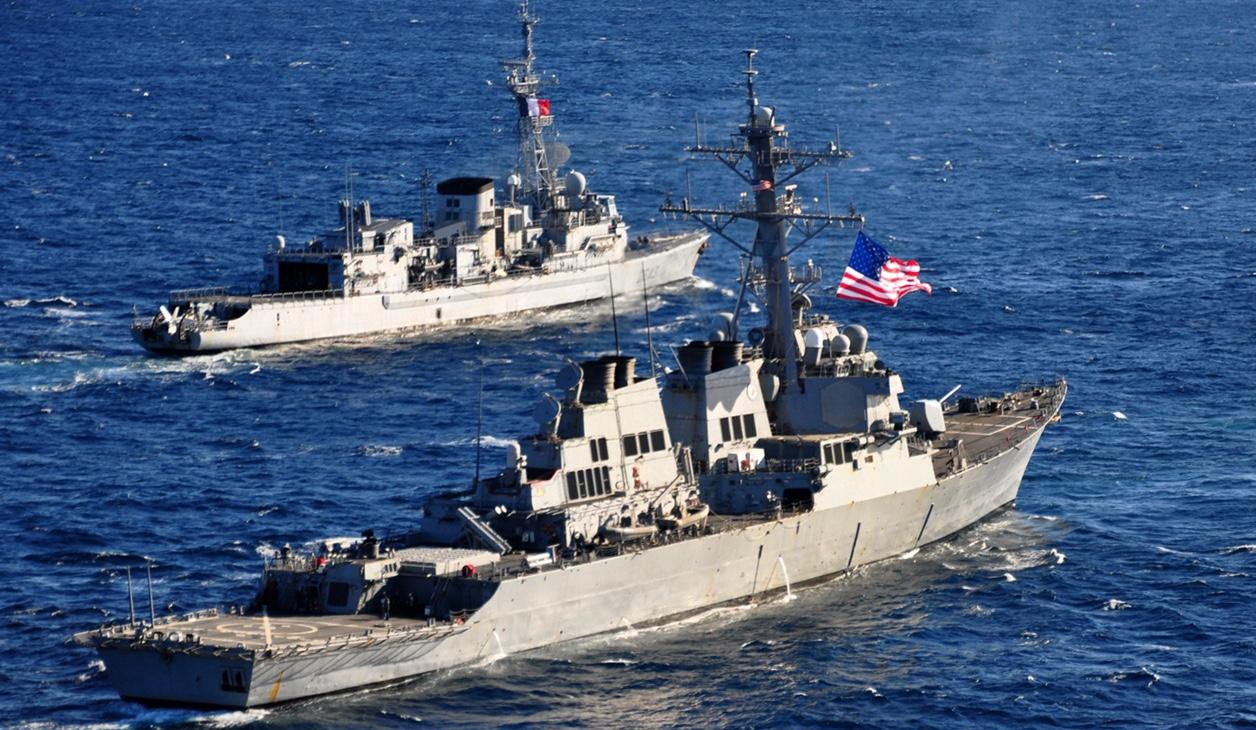
French: So I don't think there's any prospect of the United States handing over power by any kind of deliberative process. We're very far from any such imaginable scenario. But there are many things that the United States can concede to China — not the Western Pacific, not military strength, not competition over hard power terms, but things that involve cooperation, and involve the interests of third parties in terms of their economic development that involve regional integration.
The United States has been very slow, and one could say grudging, in terms of allowing China a greater voice in institutions like the World Bank and the IMF. For an economy of China's size, I think there's a very clear argument that China deserves a much bigger voice in institutions like that. This is a very low cost way of making China feel like it has more of a stake in the workings of the international system that we largely designed.
China saw that there was not much willingness to make way for it in a peaceful [way], in a financial set of institutions like these. So China said, 'well, OK, we'll go out and make some new institutions of our own.’ And they announced the creation, a couple of years ago, of the Asian Infrastructure Investment Bank, and One Belt, One Road, which is a very ambitious, vast regional infrastructure creation network, that would try to integrate China and Central Asia, and Europe, even, eventually, and other parts of the world and beyond, via the creation of rail networks and ports and airports and various other things.
The United States' initial response to that was negative, discouraging friends and allies from joining in, and not really saying very nice things about it, and questioning whether this represented a challenge by China to the global system such as we recognize it. Well so, if you don't allow China readily, with smiles and goodwill, into the existing architecture, and you don't want a war, then why would you not want China to create peaceful architecture of its own that could exist alongside the existing architecture?
Magistad: Although, the whole US-Asia pivot was inspired or encouraged by the perception that China’s economic outreach to the region, starting more than a decade ago, was part of a long-term strategy by China to push the United States aside in the region, to woo traditional US allies, and others, and make the US sort of superfluous. Do you think this is an over-reaction by the US?
French: What is a country to do when it begins to have economic surpluses? You have a choice. You can close your economy off, and become totally inward-looking, which other countries would denounce as mercantilism. Or you can say, ‘we're going to use these surpluses to inject finance in other parts of the world, through a known and defined architecture,’ which is what AIIB is. The choice for me is a no brainer as to which is better.
